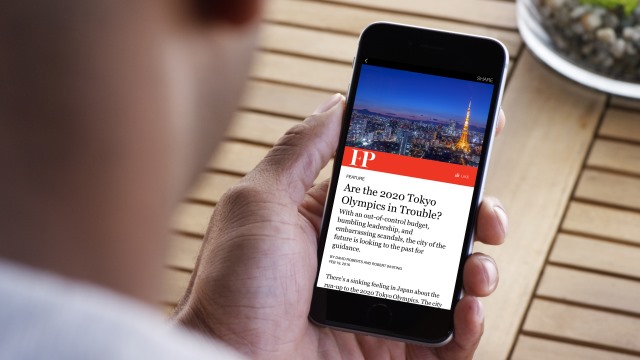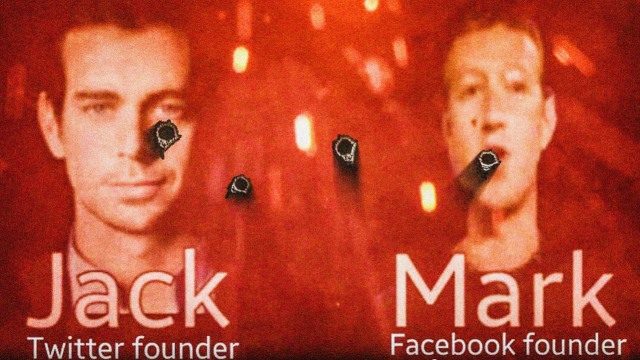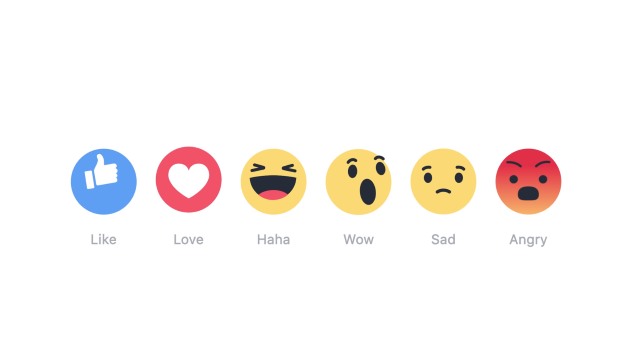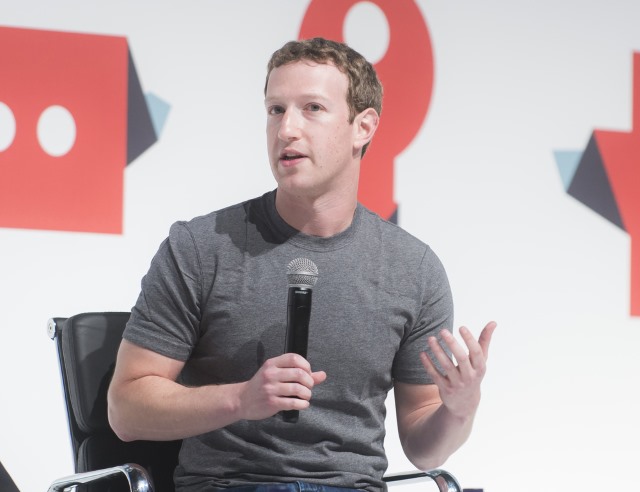
New WordPress plugin lets anyone create Facebook Instant Articles
Facebook's biggest news recently has been the global roll out of Reactions. But bubbling away in the background over recent weeks have been changes to the Instant Article program. Initially made available only to larger publishers, Facebook Instant Articles help to improve user-engagement by providing articles that load internally up to ten times faster than linking to external sites.
Facebook then announced that Instant Articles would be made available to publishers of all sizes, and today a WordPress plugin has been launched that means any blogger can take advantage of the feature. The partnership between Facebook and Automattic opens up Instant Articles to millions of users.

Swap Facebook's default Reactions for alternative emojis -- including Donald Trump and Pokémon
For years, the only choice Facebook gave us was to Like a post, or ignore it. Now, however, the social network has expanded its options, with a new set of reactions -- Like, Love, Haha, Wow, Sad, and Angry.
While this is definitely a move in the right direction, for a lot of people these choices don’t really go far enough -- and where’s the dislike button we all wanted, eh? Still, you don’t need to stick with the official Reactions, you can swap them for ones of your choosing -- including replacing the default selection with amusing images of Donald Trump showing off a range of emotions.

Facebook set to pay millions in UK tax
Tax restructuring at Facebook means the company is due to pay millions of pounds in tax in 2017. The social network famously paid just £4,327 in corporation tax in 2014, but this bill is about to get much larger as advertising revenue is set to be routed through the UK rather than the tax haven of Ireland. A wide-scaled restructuring means advertising sales will now be booked in Britain and subject to UK tax.
Tech companies such as Amazon, eBay and Google have been criticized for their use of tax avoidance schemes, although Google recently agreed to pay back £130 million in tax. Not everyone was happy with Google's 'sweetheart' deal and there has been increased pressure on other companies to pay their fair share.

German startup has greener data center than Facebook and Google
You might think Apple or Google have the greenest datacenters, but it’s actually a German startup called Cloud&Heat that takes the crown.
The company said it managed to realize the lowest energy consumption and has "undercut Google’s optimum value by 40 percent".

Fake profiles on social media could become illegal
Facebook has faced a great deal of criticism over its real names policy, and a number of people have fallen foul of the rule that prevents users from assuming a pseudonym. UK law enforcement agencies are looking for ways to tackle the problem of online abuse perpetrated by trolls.
Among the suggestions put forward by the Crown Prosecution Service is that people who use fake social media accounts to harass and abuse others should be prosecuted. The proposals would normally only apply to adults, but children could be hit by the legislation in certain circumstances as well.

Twitter to help UK prosecutors fight revenge porn and online abuse
Twitter has long-battled trolls and after launching various tools to help combat abuse, the social network is lending its support to the Crown Prosecution Service (CPS) in the UK. The social network is to work with prosecutors to provide training that will help the CPS to fight revenge porn, stalking and other forms of online abuse.
The move comes after a marked increase in the use of social media to perpetrate attacks on individuals, particularly women. But while levels of technical nous have generally increased, legal services have been slow to keep up with the latest changes. With new guidelines set to be published covering the persecution of women through social media, prosecutors are ready to call on Twitter's experience.

ISIS threatens Dorsey and Zuckerberg for closing terrorist Twitter and Facebook accounts
ISIS is many things including being a master manipulator of the media and an expert at utilizing social media. Facebook and Twitter have been key tools in the group's propaganda dissemination, and the social networks have reacted by closing down accounts whack-a-mole style.
Now Islamic State has released a video in response to the censorship. It depicts Facebook CEO Mark Zuckerberg, and Twitter CEO Jack Dorsey riddled with bullets as "the sons of the Caliphate army" threaten to fight back against account closures.

Facebook has missed a trick or two with its limited Reactions
After years of pestering, yesterday Facebook finally supplemented the famous Like button with five additional Reactions. To the disappointment of many, the much-requested Dislike button is yet to make an appearance, but this is not the only way in which the social network has let people down.
Advertisers, page owners, and the general Facebook hoi polloi now have at their disposal six reactions that serve little useful purpose. Sure, it gives users the opportunity to express a slightly wider range of emotion, but the range is far too limited. Additionally, Facebook has let down its paying users more seriously -- it fails to register the meaning and intent behind the different reactions, rendering the six options almost pointless.

Like! Facebook Reactions launch around the world
Facebook is, at long, long last, rolling out Reactions globally. The limitations of the famous Like button which have been debated since its introduction are set to become a thing of the past at the social network. Like is now joined by Love, Haha, Wow, Sad, and Angry options.
As we reported earlier in the year, the 'yay' option that had been tested is not being released at this stage -- apparently users found it difficult to interpret what it means. Reactions do not work exactly as you might expect them to, and this means you might need to be careful about how you use them to start with.

Facebook launches Suicide Prevention tool in the UK
Facebook has teamed up with charity the Samaritans to bring its Suicide Prevention tool to the UK. It's the same tool that was launched in the US a little over a year ago, and it gives users the opportunity to report content they feel might be indicative of someone struggling with suicidal thoughts.
While Facebook itself is not involved in seeking out suicide-related posts, it has a team in place ready to handle any content that is reported. The team is able to analyze and prioritize cases, and reach out to individuals to see what sort of support can be offered -- this might be as simple as having a chat, or it could involve a referral to specialist organizations.

King Arthur is back on Facebook after falling foul of Real Name policy
For many, Arthurian legend is just that: legend. But for others, it is very real. One such person is King Arthur -- or Rev Arthur Uther Pendragon to give him his full title -- was recently kicked off Facebook as the social network did not believe he was using his real name.
But now the king is back. Having proved his identity, the once and future king (Rex Quondam Rexque Futuris) has had his account restored under his legal name of Arthur Uther Pendragon. King Arthur is not the first person to cross swords with Facebook's real name policy, and he certainly won't be the last.

Pedophiles are reportedly using Facebook to share images of children
An investigation by the BBC has found that secret groups on Facebook are being used by pedophiles to share images -- and Facebook doesn't seem to be doing much to control such activity.
The BBC reportedly unearthed numerous private groups which were both run by and for men with a sexual interest in children. One group was found to have a convicted pedophile as its administrator. Despite many of the groups and images being reported to Facebook, not all of them were removed, raising the question as to whether Facebook is doing enough to combat pedophilia.

France orders Facebook to stop tracking non-users
Facebook is facing a great deal of heat in the European Union, where many countries are concerned with the ways in which the social network collects data and how it uses cookies to track Internet users.
The CNIL, France’s data protection authority, has issued a formal notice to Facebook, because it fails to comply with European data protection law. CNIL has given Facebook three months to make the necessary changes to comply with the EU’s laws. If the company is able to do this, it will not face sanctions from the data protection agency. Facebook is currently reviewing CNIL’s order which it is confident that it currently complies with.

Mark Zuckerberg is 'disappointed' at India Free Basics ban and vows to fight on
Facebook was dealt a blow today when its Free Basics program was banned in India for contravening net neutrality rules. As you would expect, Mark Zuckerberg is more than a little disappointed, but the Facebook founder says he remains "committed to keep working to break down barriers to connectivity in India and around the world".
In a somewhat bitter-sounding post on Facebook, Zuckerberg reiterated his belief that "everyone in the world should have access to the internet". But as well as hitting out at the Telecom Regulatory Authority of India (TRAI), he also says he wants to keep driving to connect the whole of India to the internet to "help lift people out of poverty, create millions of jobs and spread education opportunities".

India bans Facebook's Free Basics for contravening net neutrality rules
The Telecom Regulatory Authority of India (TRAI) has ruled in favor of net neutrality laws, effectively banning Facebook's beleaguered and controversial Free Basics program. In a win for net neutrality proponents, the telecom regulator ruled against "discriminatory tariffs for data services" saying that internet access should be provided on an equal basis.
Mark Zuckerberg's dream of connecting the entire world to the internet has met with controversy ever since it was first announced because of the way it only provides access to a limited number of websites from select Facebook partners.
